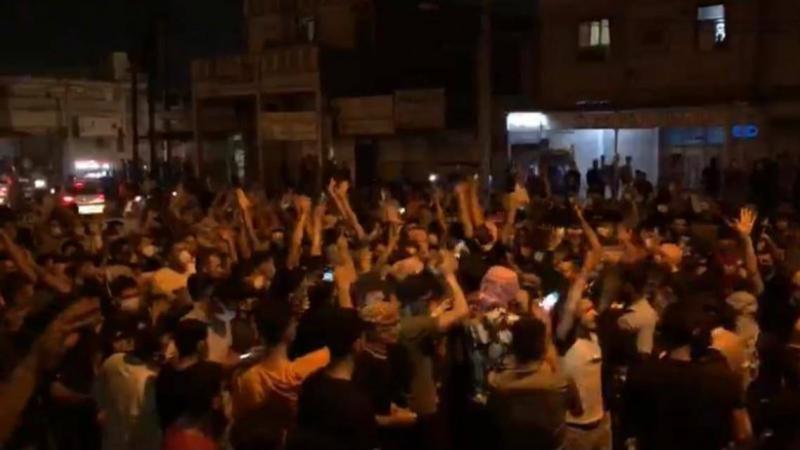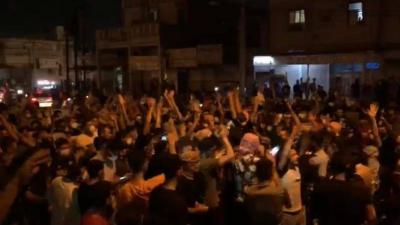Under the title "Protests in Ahvaz Continue and Expand Amid International Condemnation," Al Arabiya reported that while Iranian authorities sent thousands of reinforcements to suppress the protests, including security forces and special units, the demonstrations have spread to other neighboring cities. Protesters in Alikoodarz in Lorestan Province organized a march to express their support for those in Ahvaz, while security forces arrested dozens of demonstrators, especially after intervention by the Revolutionary Guard.
Reports indicated that protesters have taken to the streets in 10 cities surrounding Ahvaz, with activists asserting that the security reinforcements have not diminished the anger nor deterred the protesters from continuing.
**UN Intervenes in the Crisis**
Amid these developments, the United Nations called on Tehran to resolve the issue rather than resort to violence, silencing dissent, and arrests. United Nations High Commissioner for Human Rights Michelle Bachelet stated on Friday evening that it would be better for Iranian authorities to address the water scarcity problem in southwestern Iran rather than suppress protests violently. She added in a statement that the government should focus on the terrible impact of the water scarcity crisis on the lives, health, and prosperity of Ahvaz residents, and on the protests of desperate citizens after years of neglect in the face of a catastrophic situation. She emphasized that shooting at people and detaining them would only increase anger and despair, noting that the injured have refused to go to the hospital for fear of being arrested.
**Other International Organizations**
For its part, Amnesty International issued a statement today calling on Iranian authorities to stop using weapons and force against protesters in Ahvaz, highlighting the deaths of eight people during these popular protests. The statement noted recent actions by Iranian security forces in several cities of Ahvaz that resulted in the deaths of eight citizens, including a teenager, and demanded the immediate release of detainees and protection of prisoners from torture and ill-treatment.
Human Rights Watch confirmed that Iranian authorities have used excessive force to suppress demonstrations. They called for transparent investigations into at least three deaths that occurred among protesters and accountability for those responsible, as well as addressing longstanding water accessibility issues. Tara Sepehri Far, a researcher at the organization, stated that Iranian authorities have a concerning record of responding with gunfire to frustrated protesters facing escalating economic difficulties and worsening living conditions. She stressed that government authorities must ensure the right to peaceful assembly and prevent security forces from using excessive force.
**US Condemnation**
The U.S. State Department also called on Iranian security forces on Friday to cease violence and arbitrary arrests of protesters. In a statement, it expressed support for the Iranian people's rights to peaceful assembly and their rights to freely express themselves, as well as their freedom to access information online without fear of violence or arrest by security forces.
Ahvaz, overlooking the Gulf, is one of Iran's leading oil-producing regions and one of the richest of Iran's 31 provinces. It is home to a significant Arab minority, and residents of the province have previously complained of being marginalized by authorities. The region also witnessed anti-government protests in 2019 that extended to other areas of the country.




